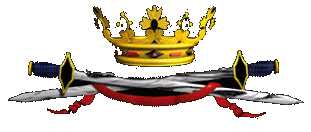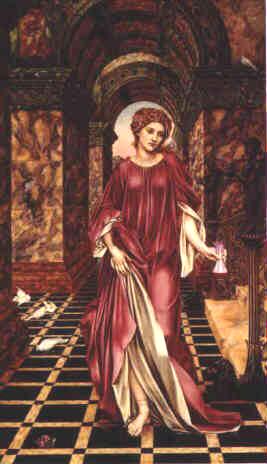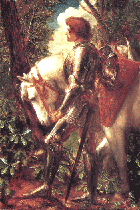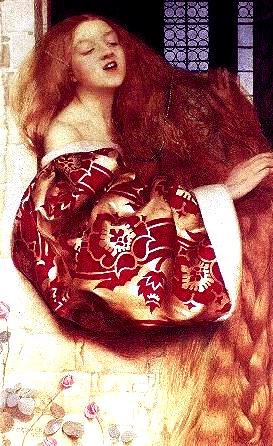|

Medieval History
Page 10
- 1415 Council of Constance. Considering that there were now two popes, that each had excommunicated the other and all of his followers, and that one half of Europe was being served by the clergy of one pope and the other half the other pope who claimed to be pope. Nobody could figure out which half was going where, however, and this was a bit unsettling to say the least. The problem was who was competent to determine the supreme head of the Church. After a lot of backing and filling, most of the folk whose opinions counted in such matters decided that a universal council was the only means of accomplishing it. The council would not only straighten out the multiple pope business, but would settle the heresies that had sprung up, reform the Church, end a number of abuses, meet regularly as the chief legislative and administrative body of the Church, and maybe get the Crusades going again.
- 1415 Execution of Jan Huss. Defenders of traditional Church practice had attacked Huss, a campus minister at Charles University in Prague, as a heretic, and Huss, always fond of a good debate, wanted to go to Constance to defend his position. Emperor Sigismund promised him safe-conduct to and from the council but, when the folks at the Council condemned Huss and arrested him, Sigismund said that he could not defy the Church.
- 1422-1461 Charles VII the Well-Served, king of France.
- 1422-1461 Henry VI, king of England.
- 1453 The Ottoman Turks, with the assistance of Hungarian artillerists, capture Constantinople. Having seen signs pointing to the city and reading (in Greek) EIS TNV IIOLNV, pronounced ace-tayn-pohl-ayn and meaning THIS WAY TO THE CITY, the Turks thought that this was the name of the place, and so it has been called Istanbul ever since.
- 1461-1483 Louis XI the Spider King, king of France. Louis was something of a slob who wore old and ugly clothes, had hair that was usually uncut and uncombed, and who prefered to sit around in lower class bars telling dirty jokes rather than presiding over the elegant society of his court. This was fine with most of his nobles. Given his bad teeth, disinclination to waste his time washing, as well as some of his other personal habits, few people enjoyed being downwind of him. Since he had also developed the idea of establishing a full-time, paid professional army, though, most Frenchmen of the time tended to agree that he was a lovable old eccentric.
- 1461-1483 Edward IV, king of England.
- 1461-1498 Charles VIII, king of France.
A chap by the name of William Caxton set up a printing press in Westminster, under the patronage of King Edward, and the history of the English printed book began. I'm not sure, but I believe that the first book Caxton printed was a manual on how to play chess, written by Jacobus de Cessolis (pronounced chess'- oh-liss). It was pretty popular, which is why we call the game chess instead of something like echeque, which is what most other people call it. Remember the Exchequer? It was called that because they counted out money at a table covered with a cloth that looked like a chess-board.
- 1483 Edward V, king of England.
- 1483-1485 Richard III, king of England.
- 1485-1509 Henry VII, king of England.
- 1492 After extensive preparation, the combined Aragonese and Castilian armies of Ferdinand and Isabella conquer the Muslim kingdom of Granada, the last Muslim foothold in the peninsula and bring the great Reconquest to an end after seven hundred and eighty-one years of mutual hostilities. It would appear that they had gotten into the habit of fighting Mulims, though, since the next thing they decided to do was to try to conquer the African kingdom of Morocco.
- 1498-1515 Louis XII, king of France.




|






